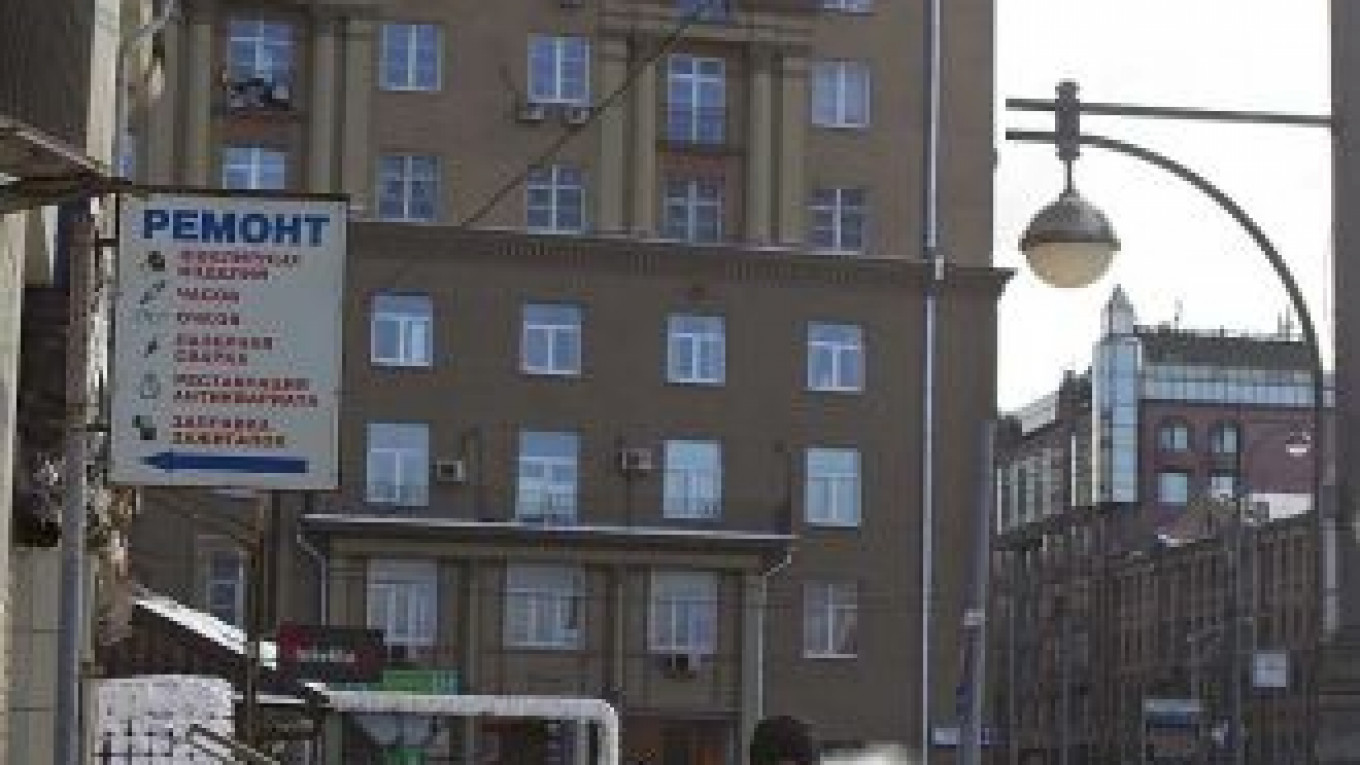The falling value of the ruble will hobble Moscow's high-end real estate market, in which values are pegged to hard currency, a real estate analyst said.
At the same time, the ruble's woes are likely to stimulate the market in cheaper properties as people try to lock their savings into devaluation-proof assets.
If the ruble continues to slide against the euro, activity on the elite property market could stall, Dmitry Khalin, managing partner of real estate firm IntermarkSavills, told RIA Novosti. January will likely see lower numbers of deals, and if the euro exchange rate stays within the Central Bank's current trading corridor — which extends from 33.5 to 40.56 rubles to the dollar-euro basket — the quantity could fall by between 25 and 30 percent, he said.
"In the elite segment people think in terms of hard currency, and even small exchange rate changes can generate price differences in the millions," Khalin said.
The ruble exchange rate to the dollar set by the Central Bank on Monday was 34.71, its weakest level since 2009. Against the euro, the ruble was trading at 47.5, a historic low. The Central Bank is committed to floating the ruble by 2015 regardless of the state of the economy, which is struggling to return to a growth rate of above 2 percent. Economic Development Minister Alexei Ulyukayev said Monday that the factors pushing down the value of the ruble are stronger than those supporting it, Interfax reported.
In contrast, a depreciating ruble is likely to stimulate sales of more affordable property.
"For people who have savings in rubles property is a long-term asset capable of preserving those savings," Dmitry Taganov, head of analysis at realtor Inkom. So far, however, feverish demand has not appeared. Purchases of foreign currency, meanwhile, have increased fourfold, a VTB spokesman told Vedomosti Monday.
In itself, the exchange rate fluctuation will not push up property prices in this segment, said head of consulting at BEST-Novostroi, Sergei Lobzhanidze, as neither builders nor sellers deal in foreign currency.
A Message from The Moscow Times:
Dear readers,
We are facing unprecedented challenges. Russia's Prosecutor General's Office has designated The Moscow Times as an "undesirable" organization, criminalizing our work and putting our staff at risk of prosecution. This follows our earlier unjust labeling as a "foreign agent."
These actions are direct attempts to silence independent journalism in Russia. The authorities claim our work "discredits the decisions of the Russian leadership." We see things differently: we strive to provide accurate, unbiased reporting on Russia.
We, the journalists of The Moscow Times, refuse to be silenced. But to continue our work, we need your help.
Your support, no matter how small, makes a world of difference. If you can, please support us monthly starting from just $2. It's quick to set up, and every contribution makes a significant impact.
By supporting The Moscow Times, you're defending open, independent journalism in the face of repression. Thank you for standing with us.
Remind me later.






